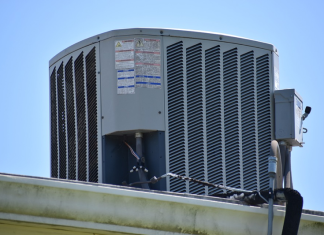Remote property management has become increasingly relevant in today’s real estate landscape. Property managers, landlords, and property owners are discovering the benefits of managing properties from afar, whether they own multiple units across the country or simply prefer the convenience of digital solutions. See what tools and strategies can ensure successful remote property management so you feel empowered to efficiently oversee your properties from anywhere in the world.
The Advantages of Remote Property Management
Explore the benefits of remote property management, from cost-effectiveness to geographical flexibility, making property management more efficient.
- Cost-Efficiency: Remotely managing properties reduces overhead costs associated with maintaining physical offices. Property managers can operate from their preferred location, eliminating the need for extensive office space and related expenses.
- Geographic Flexibility: Another advantage is that remote property management allows property professionals to diversify their portfolios by investing in properties in different regions or countries. Geographic flexibility opens up opportunities for property expansion.
- Time Savings: Digital tools and automation streamline property management tasks, saving time on administrative duties. Property managers can focus on strategic decision-making and property improvement.
- Enhanced Tenant Experience: Additionally, remote management often leverages technology to improve the tenant experience. Tenants can submit maintenance requests, pay rent, and conveniently communicate online with property managers.
Essential Tools for Remote Property Management
Discover the key tools and technologies that streamline remote property management tasks, improving operations and tenant satisfaction.
- Property Management Software: Invest in robust property management software that centralizes property data, financial records, and tenant information. Leading platforms offer rent collection, tenant screening, and maintenance request tracking features.
- Online Payment Portals: Facilitate rent collection through online payment portals. These platforms allow tenants to pay rent securely and conveniently, reducing delays and disputes.
- Smart Home Technology: Install smart devices like smart locks, thermostats, and security cameras to monitor and remotely control property access and security. These technologies enhance tenant safety and convenience.
- Virtual Tours & Inspections: Utilize virtual tour tools and inspection apps to assess property conditions remotely. It’s especially valuable for property owners or managers who can’t visit properties in person.
- Digital Marketing Platforms: Leverage digital marketing tools and platforms to market vacant properties, attract prospective tenants, and fill vacancies efficiently.
Remote Property Management Strategies
Learn effective strategies for managing properties remotely, ensuring smooth communication and operations.
- Effective Communication: Establish clear communication channels with tenants, contractors, and team members. Stay connected with digital platforms like email, messaging apps, and video conferencing.
- Streamlined Operations: Implement efficient property management workflows and processes. Automation tools can handle routine tasks, freeing up time for strategic planning.
- Regular Inspections: Schedule regular virtual inspections and maintenance checks to identify and address issues promptly. This proactive approach prevents small problems from becoming major headaches.
- Tenant Self-Service Portals: Offer tenants access to self-service portals to submit maintenance requests, pay rent, and view lease documents. In turn, this empowers tenants and reduces administrative work.
- Document Management: Maintain organized digital records of leases, contracts, property documentation, and financial records. Cloud storage solutions ensure easy access to essential documents.
Overcoming Challenges of Remote Property Management
Find solutions to common challenges in remote property management, from time zones to regulatory hurdles.
- Time Zone Differences: Address time zone challenges by establishing clear business hours and communication expectations. Use scheduling tools to coordinate meetings and tasks efficiently.
- Local Regulations: Research and stay informed about local regulations, property laws, and market trends in the areas where your properties are located. Compliance is essential to avoid legal issues.
- Emergency Response Plans: Develop and communicate plans to address unexpected property issues or tenant emergencies. Identify local service providers who can assist on-site.
- Collaborative Partnerships: Forge partnerships with local property management companies or individuals who can provide on-the-ground support.
- Cybersecurity: Invest in robust cybersecurity measures to protect sensitive property and tenant data from cyber threats. Use secure communication platforms and regularly update security protocols.
Remote property management offers many advantages for property managers, landlords, and property owners. By leveraging digital tools and implementing effective strategies, you can efficiently oversee and maintain your properties from anywhere in the world. Embrace the flexibility, convenience, and cost-efficiency of remote property management, but remain vigilant about addressing the challenges that come with it. With the right tools, strategies, and a proactive mindset, remote property management can be a rewarding and successful endeavour in the modern real estate landscape.















